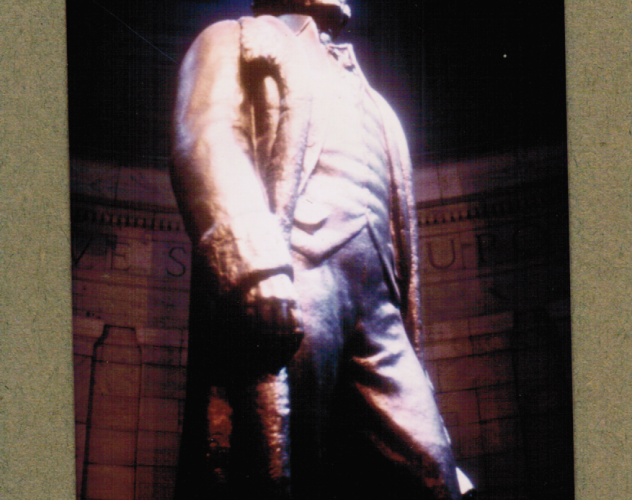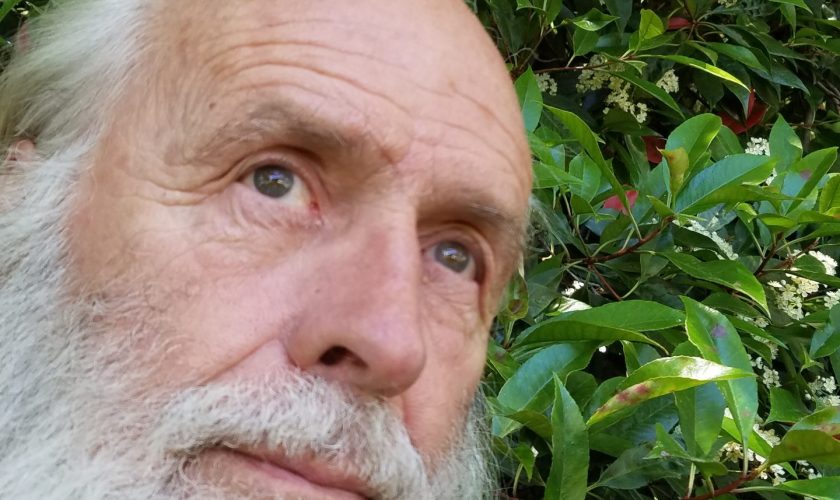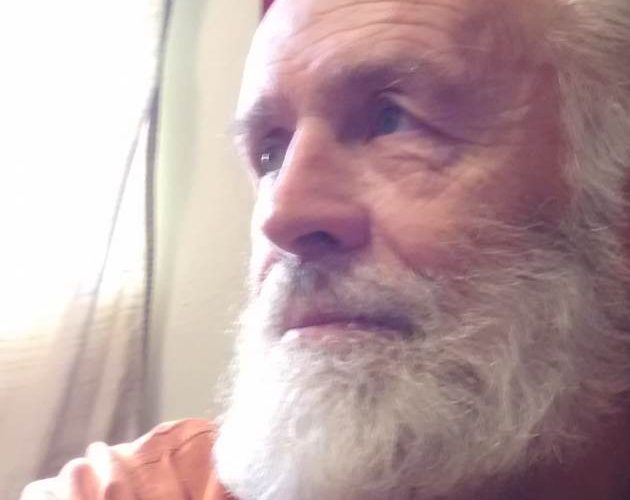Last moments of the year, late in life, I confess to my readers how spent and irrelevant I’ve become. I try to come up with…

Thomas Jefferson Then and Now
The text version is available below
Thomas Jefferson Then and Now
I am honored to speak to the Jefferson Center here in the State of Jefferson, entertained by Jefferson Public Radio – on the topic Jefferson Then and Now.
The Jefferson Center takes its name from Thomas Jefferson. Among many ideals associated with him, we are especially drawn to the ideals of curiosity, reason, inquiry, learning, and freedom of thought. Jefferson opposed intellectual or moral authoritarianism of any kind, advocating separation of church and state, relying on reason and conscience, which he developed through a lifetime of reading and discussion with thoughtful people
I have long-admired Thomas Jefferson as a key philosophical founder of our America but have come to dislike some of the aspects to his otherwise exemplary character. What better people to explore a potentially riling topic than rational, humanistic, and understanding people such as yourselves? So, I’m honored.
I am also humbled, for in the many months preparing for this address I have discovered how little I know of what could be known. Careers are spent immersed and focused on such topics. There are likely those here who know more than I do on Jefferson and his times.
I merely, and perhaps foolishly, volunteered to address your group on this topic last fall. I inherited a borrowed copy of Jon Meacham’s Thomas Jefferson – The Art of Power from Jan and Ron Waite but couldn’t mark and dogear it as I would. Instead, I read it carefully twice, taking 15 pages of tightly-worded notes. To this I also added notes from other books and websites, too much to easily summarize.
Because I was also scheduled to speak to an unfamiliar Unitarian Universalist fellowship up towards Portland last Sunday, I chose the same title and crafted a sermon on it. While my address was in general well-received, some took vehement objection, bringing in harsh facts I had not encountered. This led to further research and challenge to my former favorable view of him.
We’re prone to opinions no matter our relative ignorance of them. We tend to think in generalizations towards persons in categories. Thomas Jefferson was a man, a white, and a slaveholder – all suspect. Yet he was also an innovator in philosophical politics, an adept empath in often difficult relations, a renaissance man in general, and a visionary of a New World. As with the history we’re born into – our own parents and social station, our current society and leaders – we must make do with our own karmas and contexts, like he did with his. He was who he was then. Who are we now?
I took the photo of his statue at his memorial. It stands 19 feet tall. (Lincoln would be 26 feet.) They weren’t that tall, they weren’t giants or gods, but they were as tall as they were. So are we. They lived up to themselves. Will we?
They stand for the spirit of “all men” being equal, worthy, and free, though it took longer to include African-Americans and women. Even today, the fight for fair inclusion in a humanistic democracy that honors, protects, and allows all – goes on. Beyond our shores the gradual and fragile right to be free while cooperating with others in a self-run society – is an ideal favored by most humans.
It is so easy in these snarky, vindictive times to magnify the worst in people, elevating our values and projections from afar as if we’d do better. He was compromised and a hypocrite, but he was much more. So are we much more than our failings. We all fall, but that doesn’t mean we’re all only fallen.
The Enlightenment, Thomas Paine and Adam Smith
When Jefferson penned our Declaration of Independence, he laid down a new social and political order befitting a renewed humanity in a New World, free from the domination of king or pope. It was based on a humanistic, deistic philosophy largely built from ancient Greek and Roman philosophies and newer Scottish Enlightenment ones. While English law and Christian thought also informed him, he also deconstructed both.
King George III wasn’t God’s will on earth. Rather, Deists believed God’s will is found in the laws of real nature, not in fantasy miracles. Jefferson took his scissors to the Bible, deleting all from the New Testament except the words of Jesus. He speculated in 1822 that most would adopt the Unitarian view of a humanized Jesus. Freedom of religion was also freedom from it. We need to live as we truly are and wish. He especially admired Epicurius, the hedonist.
The happiness of an epicurean isn’t shallow and selfish. Even as Adam Smith had earlier written, private happiness is built on civic duty, and that is built of virtue. The deeper, longer happiness they envisioned was communal. The amorality of all against all, selfish, prideful units competing for advantage over others, wasn’t what they wanted.
Jefferson altered John Locke’s familiar words, changing “property” to “happiness,” putting our country on a more spiritual path. Property could mean owning land and people, whereas happiness is universally available.
To understand Jefferson’s context we remember an even more seminal philosopher of our American hope, Thomas Paine. Born in England in 1737, Paine came to our colonies in 1774, endorsed by Ben Franklin. His little 77 page pamphlet Common Sense, released January of 1776, sold 120,000 copies in the first year. He wrote, not to philosophers, but to the common man. “Why does a mere island rule a whole continent?” he rightly asked. It awakened and helped sway the colonies to break from King George. He joined the Continental army and gave all profits from his popular pamphlet to it.
“These are the times that try men’s souls,” he wrote, and by “men” he explicitly meant and included women and slaves. He became a celebrity here and especially in revolutionary France, but he was hated and condemned by England for denouncing their monarchy, all aristocracies, and hereditary rule, all in the shadow of the guillotine. However, he also wrote The Age of Reason, a diatribe against all religions, especially deconstructing the Christianity and the Bible, earning him the ire of our new nation. Such reason and passionate heresy left him to die broke and abandoned. Six unknown people attended his funeral, while 26,000 attended Franklin’s. His bones were dug up and lost.
Paine prepared for what Jefferson achieved.
We imagine the colonies as unified against England. Far from that, only about 10% were revolutionaries. New England states liked Old England. Established families, contracts, and political forms were deeply entrenched. When reading this history, it gets confusing, for the Republicans of those times were what we now call Democrats. The Republicans of today are RINOs, more akin to the elitist Federalists of then. Jefferson identified them as largely rich merchants and bankers, speculators who liked money 1st and the monarchy 2nd, “a numerous and noisy tribe.” The democratic Republicans of that time were landholders, farmers, and laborers.
Waking people up to being more than subjects and serfs was itself revolutionary. “The cause of America,” wrote Tom Paine, “is … the cause of all mankind.” Jefferson’s offered motto was “Rebellion to tyrants is obedience to God.”
Jefferson’s Social Context
Born into a relatively affluent aristocracy, when he was 21 years old Thomas inherited 30 slaves from his father Peter. Ten years later he assumed another 135 when his wife’s father also gave four plantations to them, some 14,000 acres. Ten years later, Thomas was the second largest slaveholder in the state. These boons and burdens supported his architectural, philosophical, and political nature and work.
Thomas was uneasy with slave-holding, yet maintained it. “This abomination must end,” he said, not ending it. “A man must be a prodigy,” he said, “who can retain his manners and morals undepraved by a slave system difficult to end, a “perpetual system” nursed, educated and daily exercised in tyranny.”
He inherited slaves, but he wasn’t the whip-wielding monster some imagine. The harshest punishment I found was his scowling at Jupiter when he didn’t bring a horse fast enough, reading him out in bossy tones bystanders remembered. Examples of his being more humane to his slaves are many, but not always.
Seeking a “rational and humane” plan, he tried to ameliorate the situation, building them better housing, offering some small pay and training in various trades. There were some horrid and tragic cruelties under his system, but he also purchased slaves to reunite their families, and he was known to not lay the lash on like some slaveholders would.
Slaves weren’t cheap, and slave-holders weren’t common. Such laborers were expensive to buy and maintain, but the investment paid off. $400 for a slave in 1850 equates to a low of $12,500 and a high of $205,000 in today’s dollars (depending on the metric). Average annual income was only $150, so a slave cost as much as a typical house. 80% of southerners didn’t own slaves, and of those who did, most had only one or a few. Only 1% owned more than 1000.
By the time Jefferson died he owned both slaves and debt. If he freed all his slaves, his surviving family wouldn’t have been able to satisfy the debt, nor would those slaves have paying jobs ready to take. The system was a benefit and a problem for he and them both. The only slaves he freed were those children of Sally Hemings who he probably fathered and promised to free. (Though Sally was functionally free from the time of his death, she was later legally freed by Jefferson’s daughter, Patsy.) Sadly, he refused to execute the wish of a wealthy Polish man who asked Jefferson to apply $20,000 to free and set-up his slaves. Though that money would have paid down 1/5th of his debt, he reneged on it, calculating his family would need the value of their labor more.
Besides building and running Monticello with the help of slaves, he got a lot done. Though his life’s accomplishments were many, he chose to put only a few on his tombstone: author of the Declaration of Independence, author of the Statute of Religious Freedom for Virginia, and father of the University of Virginia. He didn’t mention in his epitaph being governor of Virginia, congressman, vice president, and two-term president. No mention of his securing France’s support during the revolution or the Louisiana Purchase from them later.
Tense and divided though times were, Jefferson himself was a pragmatic empath. He liked people, even those he adamantly disagreed with. He would have opponents over for dinner and wine, meeting as persons, not positions. He would go into debt to buy the wines he served. But being conciliatory in that fractious time took its toll on him. He had headaches and diarrhea most of his life.
He was a true Renaissance man, giving over thirty years of his life to the American cause while also trying to have a life for himself. Every morning he dunked his feet in cold water and often went shoeless in the snow. He enjoyed farming, horseback riding, fishing, and architecture. He refused to wear a king-like sword as president and instead met callers in his slippers. He liked to hum, and he liked Dick, his pet mockingbird that would sit on his shoulders and sing. He built up a large library that he then sold to refurbish the Continental Library after it burnt. He spoke six languages. He hand-wrote 18,000 letters. He built and rebuilt Monticello, training the slaves who did the work in various trades, and he would join with them for fiddle music and dancing.
Besides helping found our country, he managed to buy books, design buildings, import seeds, tend to tumultuous political times (complete with ongoing wars, mostly with England), build copy machines, dumb waiters, and a cipher to send encrypted messages, travel to England, France and back, host dinners, and run a farm – and all with the help of slaves. Though in the background of the political story, they provided the practical, and I suspect the emotional, support needed to help found our country.
Jefferson’s Love Life
Thomas was a lover, not a fighter. He winced at criticism and was conflict-adverse, but he stayed loyal, entering the fray anyway. He would fall in love hard, and he had a long raft of deaths to grieve. His life was punctuated by deaths.
He especially loved and grieved his wife Martha, called Patti. He promised her on her deathbed to never marry again, and he didn’t. He did have some affairs, but none as lasting, forbidden, and private as with his slave Sally Hemings.
Sally Hemings was Thomas’ wife’s half sister. Sally’s father and grandfather were both white slave-owners. She was only one-quarter African, and her children were only one-eighth. She had long, straight hair and a light-skinned complexion. Her children looked like Thomas, though no one mentioned it. Such was a common practice of those times. Some owners bred African women slaves for pleasure and for more slaves. Whether this is simply, crudely, and only what Thomas had with her – is disputable.
Sally at age 10 was present when Thomas’ wife Patsy died in 1782. He grieved hard. It was four years later that Sally accompanied Thomas’ youngest daughter Polly to France. The ship’s captain was apparently attracted to this young, fair girl, but rather than return to America with him, she stayed on with the Jeffersons. If she had chosen to, she could have stayed in France as a free person, for French law outlawed slavery and protected those who fled it. She didn’t, and she ended up coming back pregnant, only to lose that child.
Sally stayed with Thomas for the rest of his life, over 40 years, bearing him six children, two of whom died. He had vowed to later set her children free.
While some hate this as institutionalized rape, I wonder if it wasn’t a more loving relationship than we imagine. Maybe they were both finding solace and security in the arms of each other. Jefferson would not have been able to take her into public life. As it was, it was a scandal. One accuser used the double put-down terms, “Congo harem,” to attack him for it. I’m wishing they had a good love and sex life, if necessarily private. And if they did, I wouldn’t blame them for it.
He couldn’t and didn’t take Sally into his prominent social life. Instead of her being his first lady in the White House, Thomas called gracious Dolly Madison into that crucial role. James Madison’s wife Dolly, buxom, pretty, and socially skilled, was renowned for filling it charmingly and even seductively. They all three lived for a time in the White House, close friends. Sally meanwhile tended Monticello. She named a son Madison. Three others received names from Jefferson’s mother’s family. Their families were intertwined for generations, but the racial divide kept the Hemings line in the shadows despite their predominate whiteness.
Thomas Jefferson stood tall, but he wasn’t nineteen feet tall. His inability to rise above his own privilege and racism tarnishes his otherwise heroic standing. The system of slavery he couldn’t ameliorate and didn’t fix went on to get worse. He didn’t treat Natives or African Americans as well we would prefer, but he got a lot else done. The ability to think for ourselves and say so, the right to believe as we will and disbelieve what others would impose, the valuing of education and science, the challenge and opportunity to be our own rulers instead of having popes, kings, or corporations manage our lives, the possibility of granting all inherent worth and inalienable rights – are now ours to cherish, defend, and improve. Jefferson wasn’t 19 feet tall, but he was as tall as he was, 6 foot 2 inches. He stood up to his times. Are we standing up to ours?
Now
Was it Fake Theater that the hit play Hamilton idolized Alexander Hamilton when he was such a conniving rascal then? He and John Adams often sought to secure English-style structures and relations, especially for banking, investing, and manufacturing. Jefferson wanted a more democratic base for society, with farmers and workingmen empowered. Political parties were warily regarded for fear entrenched parties, called factions, would overwhelm comity and cooperation. The tensions were as bad and divided then as they have become again now. Jefferson called it (presciently for our times) a “reign of witches.”
On August 11th, 2017 a huge angry rally of white nationalists popped up in the very town where Thomas Jefferson once founded a public university, converging on his statue. A small group of incredibly brave counter-protesters surrounded the statue of Jefferson, protecting it and his legacy from torch-wielding angry men chanting, “You will not replace us!” The next day one of them ran his car into a group of those daring to object to the bully racists, injuring many and killing one. President Trump, refusing to criticize, said, “there is blame on both sides. . . and very fine people, on both sides.”
Perhaps there are kinds of persons with types of brains that end up adopting political and religious philosophies fitting their nature. Admitting and incorporating such types of persons is the challenge of a self-run inclusive democracy. It is a perennial dispute between types. Yet here we are, still having to deal with iconoclastic factions angrily attacking e pluribus unum.
As then, so now. What is it in humans that likes bossy rulers? They’re so much simpler and more decisive than quarreling legislators. A capricious, arrogant ruler with a jutting jaw impresses some. Some support authoritarians, no matter what arbitrary cruelties they impose. Witness our alleged president chumming up with Netanyahu, Dutarte, Bolsonaro, MbS, and Putin. Death squads prowl, lawyers are killed off from Turkey to Mexico, and journalists are hacked up before the world’s eyes – no consequence. Trump’s buddy Steve Bannon, having helped elect him (and Bolsonoro in Brazil) now targets Pope Francis. Making use of a compliant media, fascists control their governments and societies. Angry bullies intimidate kinder people into isolated silence. Overweening arrogance is all the red-tie rage.
I am reminded here the ancient Seven Deadly Sins were all based on Pride. But Pride didn’t mean being glad about one’s self, it meant overweening arrogance, putting others down to put oneself up. We get confused messages in our Judeo-Christian heritage, but Historian of Religions Huston Smith helps rescue the meaning of pride and humility. For him, humility is not a “oh, I am not worthy, only Thou art great” sort of depressed, self-defeating thought. Humility is “being oneself fully in such a way as to allow others to be themselves fully.” Imagine a democracy where all lived fully, supported by others doing likewise.
However tall we are, we’re as tall as we are, and what if we lived up to ourselves? What if we met and mastered the karmas and contexts of our destiny? There is no savior to come fix our world other than how we manage to rescue and redeem it. There is no bigger country or political force to impose norms and enforce laws. Authoritarians and bullies tend to take over. Are we brave, wise, and dedicated enough to not let them pull our higher nature into lower failings, to not let the holy hope of America descend into divisive violence, walled edges, stuffed prisons, a ruined environment, and needless tragic wars?
The political challenge is upon us now as it was upon them then. I remember Thomas Paine’s faith in the Nation. While he favored a constitution and laws, he wasn’t a fundamentalist, thinking they can’t be improved. The Nation is the people incarnating self-rule in their time. Our system, noble in intent and resilient in function, staggers. One wing maims the other and we expect the bird to fly? We declare corporations to be persons and say their money is free speech? We declare journalists liars and spies, dismissing whatever facts they reveal as Fake?
Besides these daunting challenges, how do we as modern citizens try to have an honorable and enjoyable life as parents, leaders, libertines, and innovators? Are we as tall as we are? Do we purchase shirts made in slave-like settings, eat food from systems that lay waste to the laborers and land, drive cars that add a bit more trouble to the growing global warming we know is getting worse?
We’re as emmeshed in our context as Jefferson was in his. For all he tried to do and did, he didn’t come through untarnished. Nor do we. We all fall, but we aren’t all fallen. Our failures are not the only thing we do, nor should they entirely define us or others. Compromise and hypocrisy were part of Jefferson’s life, like they are in ours. The negativity bias of our brains will have us chasing ourselves and each other with amygdala-generated scorn. Snark is the new sport. Fortunately, we also assert our pre-frontals to remember compassion, affirm thinking, and promote inclusive creativity.
The advancement of the enlightenment values of human rights, self-rule, and science gradually overcome servitude, superstition, and sad, silly stupidities. The arch of justice is long, and it bends towards universal justice, freedom, rights, and fulfillment. The slave who started out helping to cast the bronze Liberty atop our Capital ended up freed by its completion. We slowly get better when we want to.
I close remembering the slave Burwell Colbert. He rescued Thomas Jefferson from the plaster cast that almost killed him, and he propped up his pillow on his death bed. Curious he should have the same last name as the brilliant comedian who helps explain our current events, Steven Colbert. Steven stands as tall as he is. We should too.
Byron Bradley Carrier
For the Jefferson Center, Ashland, Oregon
© April 14th, 2019
Subscribe
0 Comments






